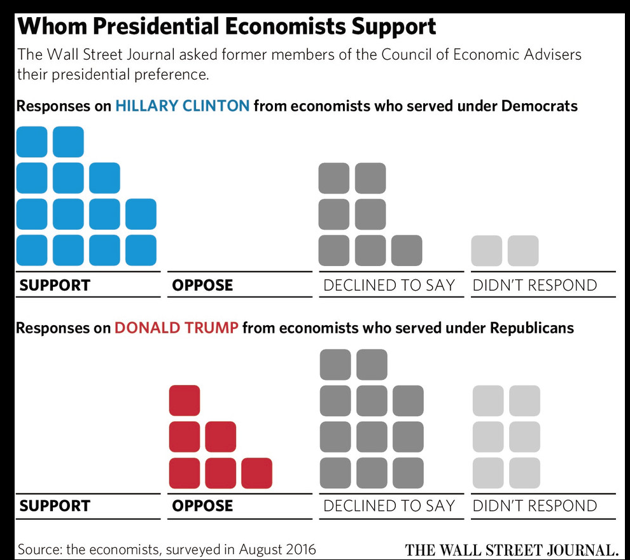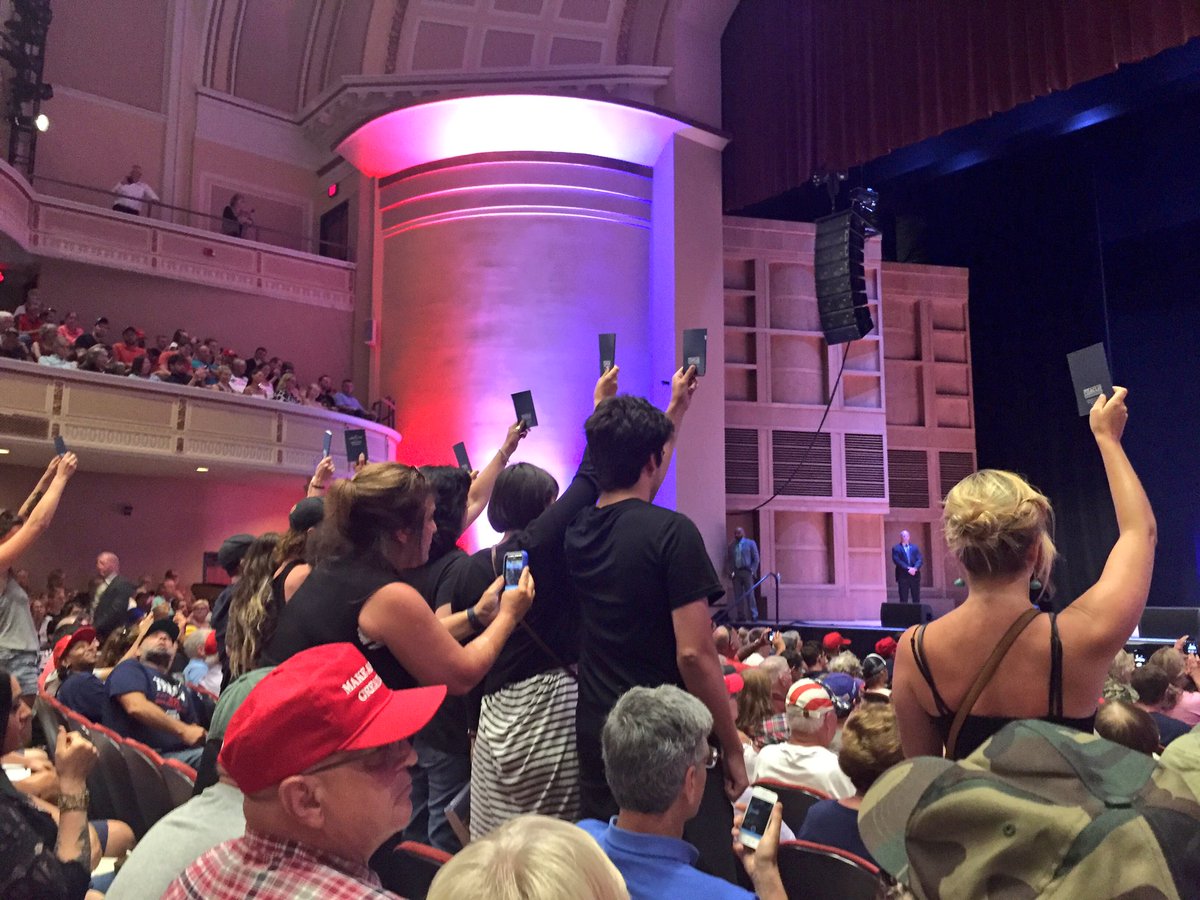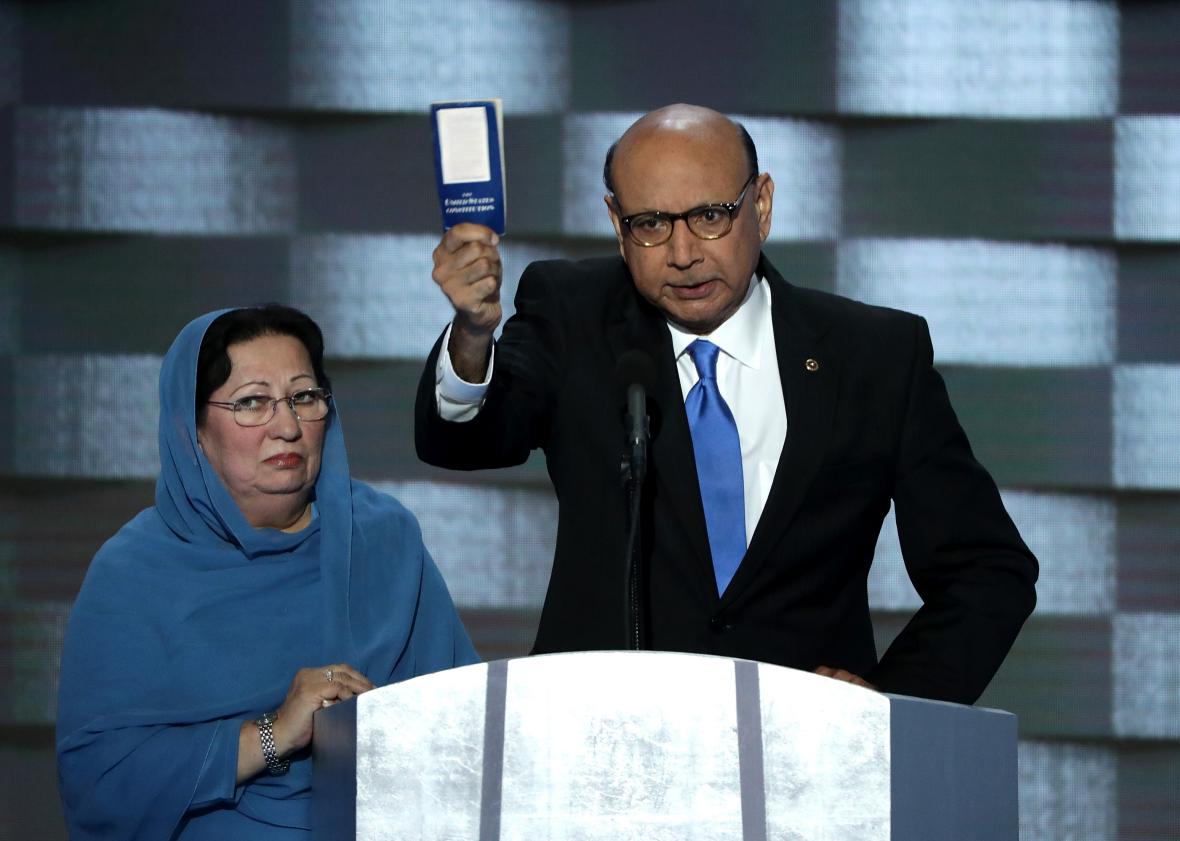What now strikes me most about trigger warnings is how small a request they are, in proportion to the backlash they incite. What is it about about this entirely free gesture of empathy that makes people so outraged?
- Kat Stoeffel, "Why I Stopped Rolling My Eyes at Trigger Warnings"
This week's featured posts are "Academic Freedom and Institutional Power at My Old School" about the University of Chicago's denunciation of trigger warnings and its affirmation of "controversial" speakers; and "About the Foundation", which makes the case that the "scandal" of the Clinton Foundation has a lot less substance than you might think.
This week everybody was talking about immigration
Donald Trump appears to have finally found ten seconds to think about his immigration proposals. Wow, deporting 11 million people would be tough to do, wouldn't it? Who knew? (Well, just about everybody Trump debated in the primaries, to name a dozen or so.) Maybe he's rethinking it. Or maybe not. Watch this space.
You know who should be paying attention to this? Not just the people who voted for Trump in a primary because they wanted 11 million brown people rounded up and tossed out on their ears, but also the mainstream Republicans who were placated when Trump said he would appoint Supreme Court justices from a list of judges with sound conservative credentials. When it gets to be decision time, that promise won't mean anything either.
Slate's Jamelle Bouie makes an even stronger statement about Trump "outreach" to black voters than I did last week: It's really a dog whistle to white supremacists.
and trigger warnings
The University of Chicago, where I did my graduate work in the late 70s and early 80s, made the news this week when the Dean of Students sent a somewhat adversarial welcome-letter to the incoming freshman class, warning them not to expect any safe spaces on campus.
This whole notion of academic freedom threatened by over-sensitive students, who want to be educated without ever being challenged, and of brave U of C administrators standing up to them, is bogus. I challenge the Dean's underlying assumptions and relate some of my own experiences in "Academic Freedom and Institutional Power at My Old School".
and the national anthem
49er quarterback Colin Kaepernick has kind of a complicated racial heritage: He's a mixed race child (African/European) who was adopted and raised by white parents alongside their white children. In my judgment, he could pass for a white guy with a good tan.
Footballwise, he's a huge talent whose career has been relatively disappointing so far, kind of like Robert Griffin III or Cam Newton until he broke out last year. Five years from now, he could be in the Super Bowl or he could be selling insurance somewhere.
But none of that is why he made headlines this week. Friday night, before a preseason game against the Green Bay Packers, he refused to stand for the national anthem. Unlike Olympic gymnast Gabby Douglas, who raised a furor by failing to appear sufficiently focused and respectful while the anthem played during a medal-award ceremony, Kaepernick actually intended to protest, saying afterward:
I am not going to stand up to show pride in a flag for a country that oppresses black people and people of color.
This aroused a bunch of anger against him, like fans burning his jersey. It's a fundamentally convoluted response: We hate this guy for speaking his mind because Freedom.
I doubt Kaepernick's disapproval will induce America to change its ways with regard to race, but maybe it will start a much-needed discussion about "The Star-Spangled Banner" and the flag-worshipping rituals at sporting events.
To my mind, beginning a sporting contest with the anthem (or with two anthems if a U.S.-based team plays one from Toronto or Vancouver) is a strange practice we would never start today if it weren't already traditional. We don't begin movies or plays or concerts with the national anthem, so why sports? There's nothing particularly patriotic about playing or watching sports. And if some terrorists or revolutionaries want to take time off from their plotting to root for the Cubs, I don't see the harm.
Personally, I stand respectfully when the anthem is played before a Nashua Silver Knights baseball game, but I'm doing it to avoid calling attention to myself, and I resent being forced to make a political statement before I can watch the game.
The Kaepernick controversy has also sparked some discussion about the anthem itself, particularly these lines from its third verse
No refuge could save the hireling and slave
From the terror of flight or the gloom of the grave
which refer to the fact that the British encouraged American slaves to run away during the War of 1812, when the anthem was written. But Francis Scott Key is cheered by the fact that a lot of them died anyway. Go, USA!
Maybe we could just play ball, and skip all this nonsense.
and you might also be interested in
Incredibly, the WSJ could find no living member of any president's Council of Economic Advisers who supports Trump.
Last week's discussion of private prisons caused one of the commenters to point out an amazing article "My Four Months as a Private Prison Guard", which appeared a few months ago in Mother Jones. It's long and horrifying, but well worth the time and discomfort.
The article is a combination of an expose with a personalized Stanford prison experiment. Being a guard really does start to change the writer.
The other thing that comes through is the complete absence of any notion of rehabilitation. Literally no one in the story cares about the prisoners as people, or about returning them to society.
In Newsweek Kurt Eichenwald explores "Donald Trump's God Problem". Though more accurately, the problem doesn't belong to Trump, it belongs to the evangelical leaders -- like James Dobson -- who not only support Trump, but who claim that their support is based on their Christianity.
The primary issue here is the credibility of evangelicalism, particularly as it relates to politics. For years, there has been a logic to the evangelists’ support of the Republican Party: Both held similar views on most social issues, and there was more public discussion by conservative candidates about how faith informed their policies. This year, that is not true. Instead, you have a man whose positions on important social issues have changed, whose faith is obviously shallow and who seems to know nothing about even the basics of evangelicalism, Christianity or the Bible. Mr. Dobson, if Donald Trump represents Christian values, those values mean nothing. By endorsing him, evangelists are creating the image that what matters to them is political influence, not the word of God.
Eichenwald could just as validly be addressing Jerry Falwell Jr., who called Trump "God's man to lead our great nation at this crucial crossroads in our history" and hallucinated "I’ve seen a man who honors his fiduciary responsibilities through his corporations." Or the lesser known but still influential theologian Wayne Grudem, who promotes Trump not as the lesser of evils, but as "a morally good choice" (setting off Amy Gannett, who I linked to two weeks ago).
I would argue that these power-corrupted leaders are not just "creating the image" that politics drives them, they are exposing the truth about themselves: Conservative politics is now a demonic spirit that possesses the body of evangelical Christianity. It needs to be cast out.
Van Jones explains the incarceration problem very simply and directly:
A lot of times people say, "If you don't want to do the time, don't do the crime." Really? Have you ever committed a crime? You've got more people who are doing drugs on college campuses, in yacht clubs, country clubs -- we all know that's going on. But the SWAT team never shows up there. The SWAT team shows up in the housing projects, where you've got poorer people doing fewer drugs, and those people go to prison.
But think about it: What if one of the times when you were breaking the law, when you had something illegal in your pocket, in your car, at your party, the police had kicked in those doors. Would you want to be known for the rest of your life based on what happened that night? That is what is happening to millions of people.
If rich folks kids get in trouble, they go to rehab. Poor folks kids get in trouble, they go to prison.
and let's close with a time trip
Take a flight over Rome during the reign of Constantine.








